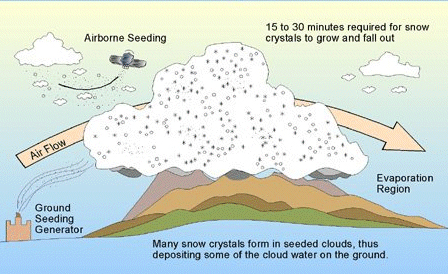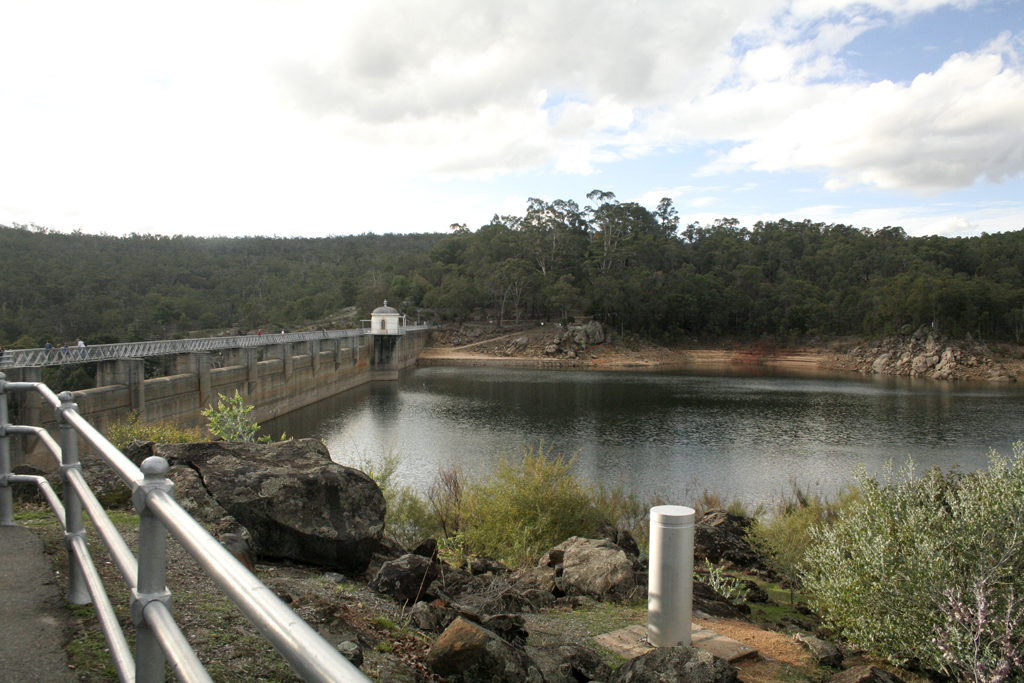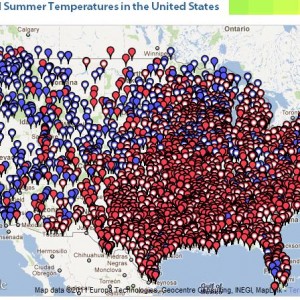Disturbing U.S. WASH Report: Water and Sanitation Lacking for Poorest Americans
Despite an extensive water and sanitation system ranking among the world’s best, a new report has shocking tales of some of the poorest Americans living without affordable, convenient access. In Sacramento, for example, one individual uses his bike to haul the homeless community’s fecal waste in plastic bags to a public restroom — located several miles away — where he flushes and discards the contents.
The good news: the United States has “near universal access” to drinking water and sanitation.
The bad news: the poorest and most marginalized U.S. residents — including the homeless, minorities, and indigenous peoples — suffer disproportionately from a lack of clean water and toilet access, according to a report from a United Nations-appointed legal expert.
Over the last two years, Catarina de Albuquerque, a Portuguese lawyer who in 2008 took up her U.N. post as the “Special Rapporteur” on the right to safe drinking water and sanitation, visited Japan, Slovenia, and the U.S. to investigate the WASH facts on the ground. Her reports examine water quality and sanitation, affordability, and access by marginalized groups.
The tours bracketed two U.N. decisions declaring a human right to water and sanitation. In July 2010, the U.N. General Assembly voted to approve such a right, a vote from which the U.S. abstained. Two months later, the U.S. did join the consensus opinion in favor of a similar resolution put before the Human Rights Council. As a result, nations are now expected to take progressive steps to expand water and sanitation services to their entire population.
During the U.S. tour, which took place from February 22 to March 4 of this year, de Albuquerque held seven public meetings in the communities she visited. She traveled to Washington, D.C.; Edmonston, Maryland.; Boston and Falmouth, Massachusetts; Sacramento and Redding in California’s Sacramento Valley and several communities in the state’s San Joaquin Valley.
She was particularly worried about water quality in Tulare County, California, one of the state’s top agricultural producers, where nitrate levels in the groundwater supplied by small systems regularly exceed federal standards.
She found that households in the county’s small town of Seville typically spent 20 percent of their income on water and sanitation, buying bottled water to compensate for the poor-quality tap water. The average household in the U.S. spends 0.5 percent of income on water and sanitation. The U.S. Environmental Protection Agency uses a threshold of 2 percent when calculating affordability criteria. But, unlike household energy costs, there is no mandatory federal standard for water affordability — a gap de Albuquerque recommends closing.
The U.N. expert also recommended a review of the Safe Drinking Water Act exemptions that were granted to oil and gas companies under the Energy Policy Act of 2005. She also recommended the formulation of a national water and sanitation policy, saying that decentralized systems serving single households or neighborhoods could be used to make clean water and sanitation more widespread and affordable.
In Sacramento, de Alburquerque was appalled by sanitation circumstances among the homeless. There she spoke with Tim, the homeless community’s self-appointed “sanitation technician.” Every week, Tim uses his bicycle to haul the camp’s 60 to 100 kilograms (130 to 230 pounds) of fecal waste in plastic bags to a public restroom — located several miles away — where he flushes and discards the contents.
“The remarkable contribution,” she writes, “of this single human-rights defender to assume such a burden in defense of human dignity and the human right to sanitation in no way reduces the responsibility of public authorities to correct this and similar situations elsewhere in the country.”
The report notes that, although the U.S. has nearly eliminated formal discrimination in the law, some of the poorest residents are still excluded from those rights, in practice. Moreover, de Albuquerque says, such divisions may become wider in the coming years as climate change increases the competition for water resources and as an aging water-supply system forces the cost of water and sanitation services to increase.
In response to the report, the U.S. representative to the Human Rights Council, in a statement at the council’s dialogue on the right to drinking water and sanitation, said that he was concerned that the report focused on anecdotes that “do not fairly depict the state of drinking water and sanitation in the United States.”
“The report,” he continued, “does not take into full account the federal system of the United States, where a number of the issues raised may be most feasibly handled at the state or local level, rather than through federal action. As the report notes, water in the United States is governed by a complex amalgam of federal and state statutes which make it hard to make generalizations; however, given the broad range of issues and situations in our country, it is impossible to have a one-size-fits-all solution.”
Brett writes about agriculture, energy, infrastructure, and the politics and economics of water in the United States. He also writes the Federal Water Tap, Circle of Blue’s weekly digest of U.S. government water news. He is the winner of two Society of Environmental Journalists reporting awards, one of the top honors in American environmental journalism: first place for explanatory reporting for a series on septic system pollution in the United States(2016) and third place for beat reporting in a small market (2014). He received the Sierra Club’s Distinguished Service Award in 2018. Brett lives in Seattle, where he hikes the mountains and bakes pies. Contact Brett Walton









Leave a Reply
Want to join the discussion?Feel free to contribute!